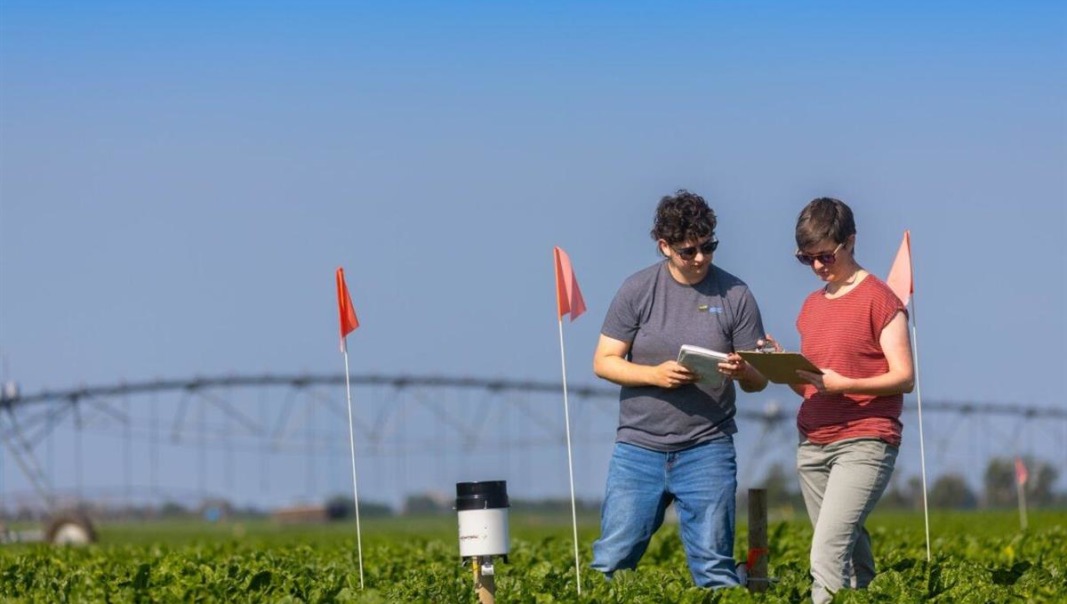Lethbridge College receives more than $200,000 in federal research grants
Friday, June 14, 2024
Reference: Press Release
 June 14, 2024 – Lethbridge College will receive more than $200,000 in federal research funding through the College and Community Innovation (CCI) program.
June 14, 2024 – Lethbridge College will receive more than $200,000 in federal research funding through the College and Community Innovation (CCI) program.The funding was announced today by Yasir Naqvi, Parliamentary Secretary to the Minister of Health and Ryan Turnbull, Parliamentary Secretary to the Deputy Prime Minister and Minister of Finance and Parliamentary Secretary to the Minister of Innovation, Science and Industry on behalf of the Honourable François-Philippe Champagne, Minister of Innovation, Science and Industry.
The college’s Centre for Public Safety Applied Research (CPSAR) and its Spatial Technologies Applied Research and Training (START) Centre have been awarded $200,000 to collaborate on the introduction of a new medium for performance and presentation called the Spatially Interactive Panorama, while the college’s Mueller Irrigation Research Group will receive nearly $29,000 to support the transformation of the Lethbridge College Research Farm into a Smart Irrigation Farm.
Each project is receiving a one-year CCI program Applied Research Tools and Instruments (ARTI) grant, administered by the Natural Sciences and Engineering Research Council of Canada (NSERC) in collaboration with the Social Sciences and Humanities Research Council and the Canadian Institutes of Health Research.
“These awards will help us add to our applied research infrastructure and equipment, allowing us to work with our community and industry partners in ways that fit their real-world applications and contexts,” says Dr. Andrew Dunlop, Director of Applied Research Operations. “We also take pride in the fact that ARTI grant reviewers, in selecting Lethbridge College for these awards, made a point of recognizing our strong partner connections.”
Researchers in CPSAR and START will use the $200,000 ARTI grant to create a portable Spatially Interactive Panorama (SIP) to support applied research projects that are initiated by public safety partners, the spatial technology industry and community stakeholders.
The SIP will share narrative visual and audio traits, while wrapping participants in a 200-degree projected panoramic image, thereby enhancing oral and gesture-based storytelling and enabling interactive learning and training scenarios.
“Building and exploring a novel medium, like the SIP, has many benefits,” says Dr. Kirsten Fantazir, President’s Applied Research Chair in Public Safety. “This includes but is not limited to developing intercultural competence, helping preserve Blackfoot culture and language, and enhancing police education, training, assessment and ethical decision making.”
The Ninastako Cultural Centre will be a partner on the SIP project.
The college’s Mueller Irrigation Research Group will use its $28,916 ARTI grant to purchase and build an outdoor WiFi network on the Research Farm east of Lethbridge. Because irrigation water is a finite resource in southern Alberta, researchers focus on precision irrigation – applying the right amount of water, with the right equipment, to the right place at the right time.
The Mueller Irrigation Research Group recently purchased equipment to be used on the Research Farm to monitor crop water requirements, soil moisture dynamics, irrigation water use and more. With the new outdoor WiFi network, researchers will be able to collect, visualize, interpret and share the data in nearly real-time. This technology will boost irrigation research projects by facilitating the development of decision support tools that rely on real-time observations.
“Having real-time access to data collected on the Research Fam is not just great for researchers,” says Dr. Willemijn Appels, Mueller Applied Research Chair in Irrigation Science. “It also helps us communicate our work to industry partners and enhances the demonstration function of the farm as well.”
CPSAR, START and the Mueller Irrigation Group, in addition to the Advanced Post-harvest Technology Centre, Integrated Agriculture Technology Centre and Microbial Research Laboratory, are all part of the college’s Centre for Applied Research, Innovation and Entrepreneurship (CARIE) which is a catalyst for applied research that results in real-world solutions, economic growth, sustainability and social and community development.
Lethbridge College has steadily climbed in Canadian college research rankings, placing 11th in the 2023 Research Infosource ranking of Canada’s top 50 research colleges.
Photos available for download:
• LC-SIP-Rendering: A rendering of Lethbridge College's Spatially Interactive Panorama created by Tyler Heaton, industry liaison and research advisor, START
• LC-Research-Farm: Dr. Willemijn Appels (right) on the Lethbridge College Research Farm.
For more information, contact:

Sign up to stay connected
- News
- Property Alerts
- Save your favourite properties
- And more!
Joining Farm Marketer is free, easy and you can opt out at any time.
